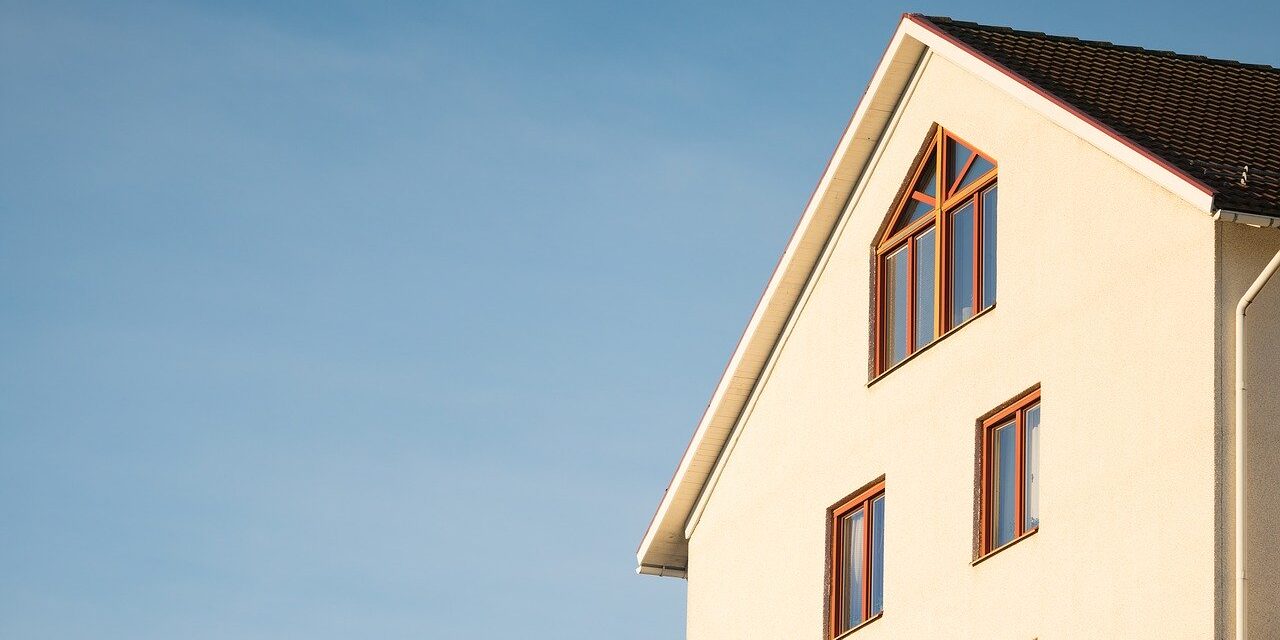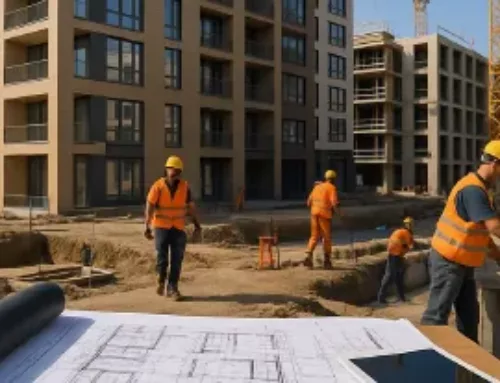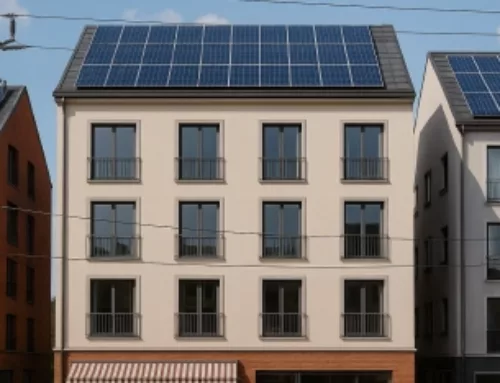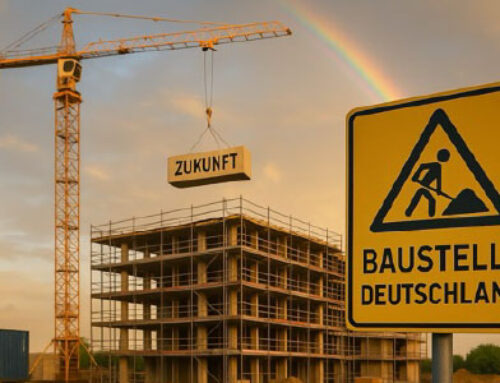The German real estate industry is undergoing a dynamic process of change in light of the significant changes in the global situation.
The fight against climate change can no longer be delayed. The smoothest possible transformation from fossil to renewable is therefore required.
Global trouble spots have led to increased inflation and the resulting significant rise in interest rates. This has brought the boom years of the real estate industry to an abrupt end.
The actual demand for apartments cannot be met at present.
Against this backdrop, there are numerous legislative changes and proposals, some of which have been initiated by the federal government or state governments and some of which are prescribed at European level.
This weekly blog is intended to help keep track of the most important developments, particularly from an international perspective.
WEEK 1:
• What’s new on the German property market?
In 2023, the output of newly installed photovoltaic systems reached record highs, not at least due to a boom in “balcony power plants”.
It has actually come into force: the Building Energy Act (also known nationally and internationally as “Habeck’s Heating Act”) has been in force in Germany since the beginning of January 2024 – https://www.gesetze-im-internet.de/geg/index.html
Perhaps even more important, but from a Scandinavian perspective probably rather tiredly smiled at: the German attempt to “enter” district heating planning with the so-called Heat Planning Act, which has also been in force since the beginning of January – https://www.gesetze-im-internet.de/wpg/BJNR18A0B0023.html. The Building Energy Act and the Heat Planning Act are intended to dovetail and initiate the German heating transition.
Prices for German residential property fell more sharply last year than they have for at least 60 years
– Condominiums became 8.9 % cheaper
– Single-family homes became 11.3 % cheaper
– Multi-family houses became 20.1 % cheaper
Commercial property: Many commercial properties have been vacant since the coronavirus pandemic. According to recent studies, around 1.8 million square metres of office space that can be converted into residential space is available in Germany’s 7 major cities. The German government intends to create incentives for conversion.
• What’s going on in Hamburg?
The Free and Hanseatic City of Hamburg – which entered the race with the goal of issuing 10,000 permits for residential construction per year – also clearly missed its 2023 target. Just 5,404 were issued last year. Politicians are doing what they have to do: the high level of subsidy approvals for social housing (2380 approvals) is praised.
• And what is the case law doing? ⚖️
It has become particularly popular among cities and municipalities to no longer sell their own land, but to grant it by way of a so-called heritable building right (colloquially often also referred to as a leasehold) with a building obligation. The rules for this are set out in the Leasehold Act. However, according to the Federal Court of Justice (BGH), there is room for manoeuvre for cities and municipalities, which can mean that a leaseholder who does not fulfil their obligations (in particular the obligation to build) can, in the worst case, lose their leasehold without compensation (BGH, judgement of 19 January 2024, case no. V ZR 191/22). The heritable building right will therefore probably remain the favourite of cities and municipalities.





